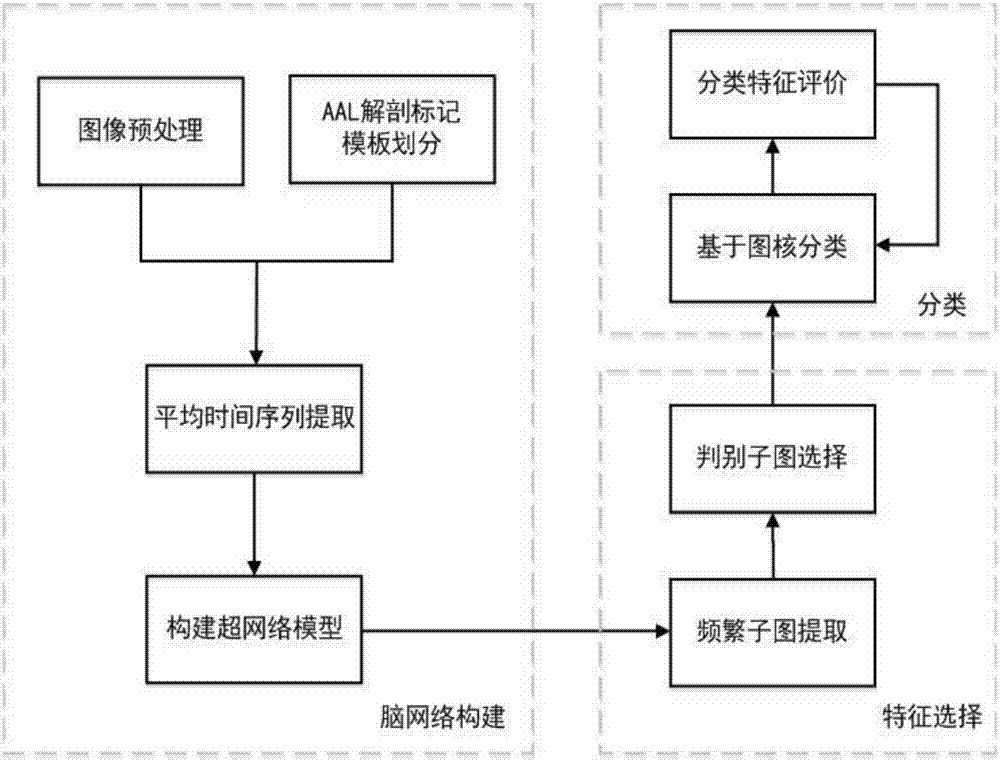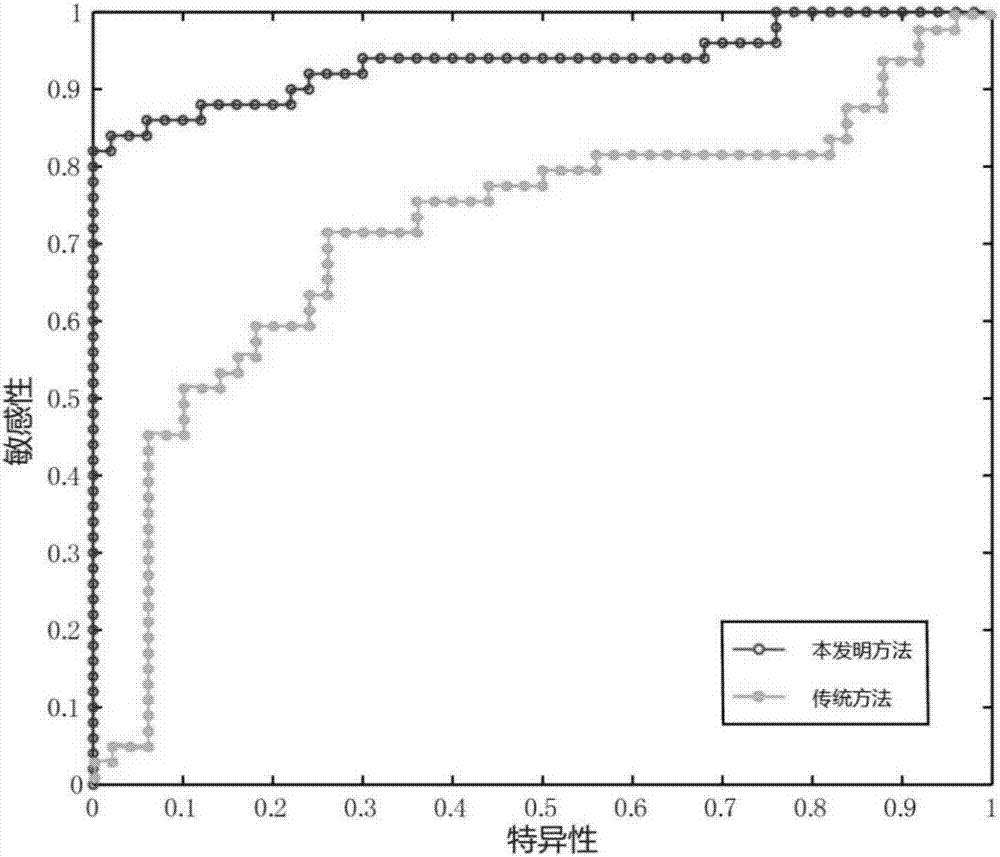Functional magnetic resonance image data classification method based on super-network discriminant subgraphs
A fMRI and image data technology, applied in the field of image processing, can solve the problems such as the inability to give effective explanations for changes in brain network structure and the loss of topological structure information of brain areas.
- Summary
- Abstract
- Description
- Claims
- Application Information
AI Technical Summary
Problems solved by technology
Method used
Image
Examples
Embodiment Construction
[0064] The technical solutions in the embodiments of the present invention will be clearly and completely described below in conjunction with the embodiments of the present invention. Apparently, the described embodiments are only some, not all, embodiments of the present invention. Based on the embodiments of the present invention, all other embodiments obtained by persons of ordinary skill in the art without making creative efforts belong to the protection scope of the present invention.
[0065] The functional magnetic resonance image data classification method based on the supernetwork discriminant subgraph, specifically according to the following steps:
[0066] Step S1: Preprocessing the resting-state fMRI image data, and then segmenting the image into regions according to the selected standardized brain atlas, and extracting the average time series of each segmented brain region;
[0067] Step S2: Using the sparse linear regression method, calculate the linear combinati...
PUM
 Login to View More
Login to View More Abstract
Description
Claims
Application Information
 Login to View More
Login to View More - R&D
- Intellectual Property
- Life Sciences
- Materials
- Tech Scout
- Unparalleled Data Quality
- Higher Quality Content
- 60% Fewer Hallucinations
Browse by: Latest US Patents, China's latest patents, Technical Efficacy Thesaurus, Application Domain, Technology Topic, Popular Technical Reports.
© 2025 PatSnap. All rights reserved.Legal|Privacy policy|Modern Slavery Act Transparency Statement|Sitemap|About US| Contact US: help@patsnap.com



